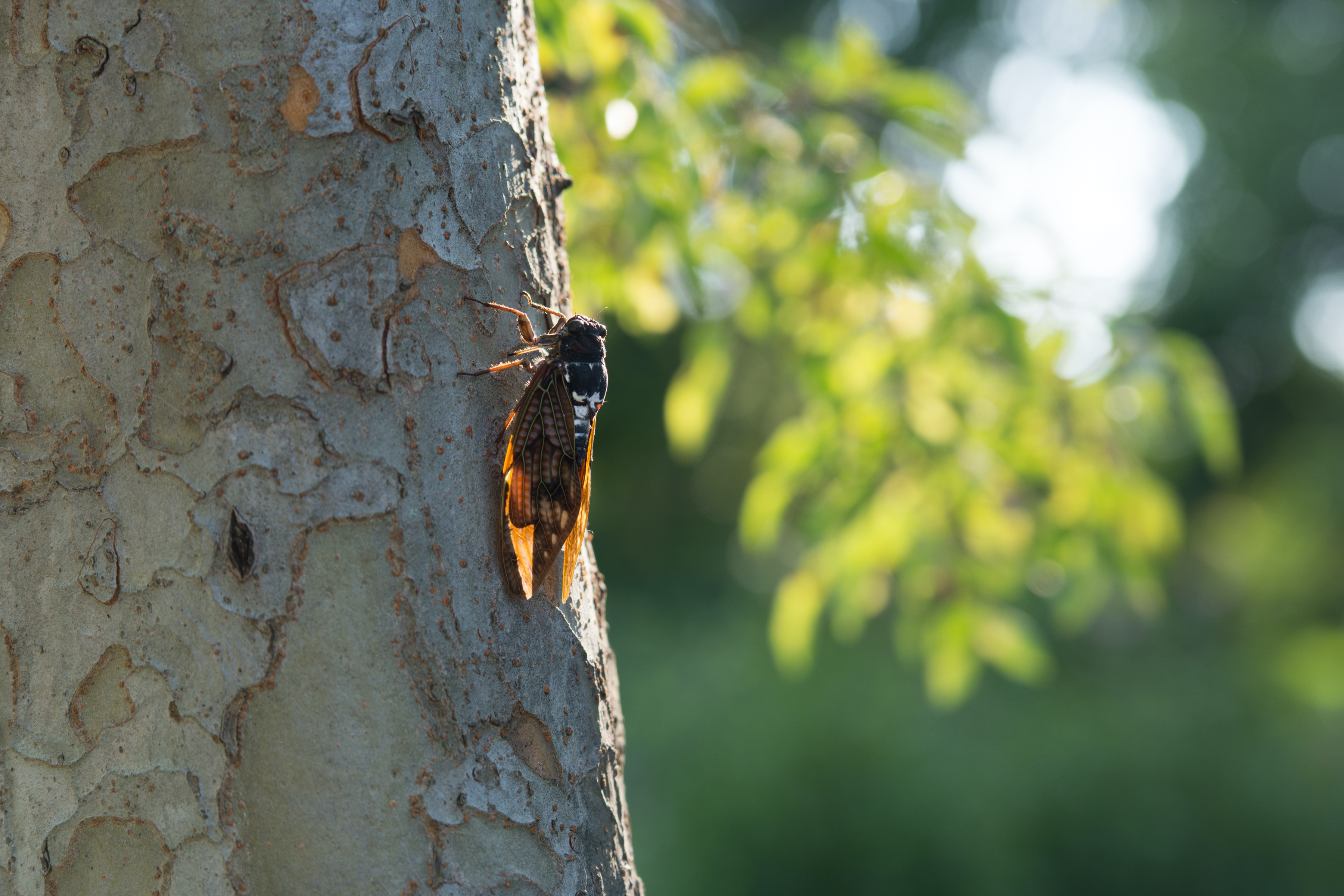For the first time since 1803, two broods of cicadas have synchronized their 13- and 17-year emergence in Northern Illinois. Trees pulse with their mate-attracting racket.
Why it matters
The collective mating calls of cicadas can reach levels as loud as a jet engine, up to 90-110 decibels. While unlikely to cause hearing damage for most people, the extreme noise poses a particular challenge for some.
For the 15% of the population with tinnitus (ringing, buzzing or whooshing in the ears), the cicada sounds can have divergent effects:
- For some, the loud external noise may temporarily mask and reduce the perception of their tinnitus.
- For others, the racket can worsen their tinnitus.
People with hyperacusis will likely find the cicada chorus very bothersome. Hyperacusis is sensitivity to everyday loud sounds and affects 5-15% of Americans.

How it works
- The deafening buzz is produced by male cicadas vibrating their abdominal muscles to attract mates.
- The highest noise levels are on warm days near trees.
- Prolonged exposure at very close range could potentially risk hearing damage.
Know your cicadas
- Cassini are the loudest, according to Chris Simon, an evolutionary biologist at the University of Connecticut.
- Decula cicadas sound like tambourines.
- Decim cicadas issue a long woooo-oo.
- You can listen to each type here →
What to do
Stay indoors with windows closed when possible. If you're outside—
- Consider wearing earplugs or headphones
- Avoid peak noise times during hot days
- Monitor if sounds are worsening any tinnitus or hyperacusis symptoms
The schedule
After about 6 weeks, this mating symphony will stop, followed by an encore performance in 13 or 17 years.
Healthy hearing starts here
★ For facts about hearing loss and hearing aid options, download The Hearing Loss Guide.
★ Sign up for our newsletter for the latest on Hearing aids, dementia triggered by hearing loss, pediatric speech and hearing, speech-language therapies, Parkinson's Voice therapies, and occupational-hearing conservation. We publish our newsletter eight times a year.
★ Call 708-599-9500 to schedule a free, 15-minute hearing screening by an audiologist.
Don't let hearing loss rob you of your health and happiness.

